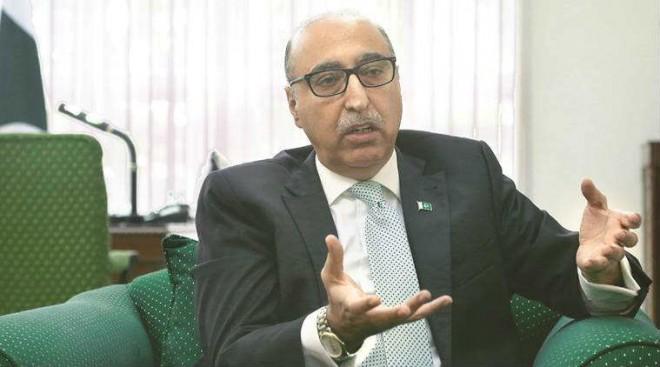
Pakistan on Monday said that it was ready to resume talks with India, and would not even put forward conditions to it — meaning, it would not rake up the Kashmir issue when talks concern terrorism, trade or other topics — if India proposed the dialogue.
Indo-Pakistan dialogue has been suspended for quite some time now, and chances of their resumption have taken hit after hit with each attack on Indian soil, perpetrated by terrorists infiltrating into India from Pakistan, and each ceasefire violation by the Pakistani Army along the Line of Control (LoC) between the two countries.
However, Pakistan High Commissioner Abdul Basit, in an interview to Aaj Tak, said on Monday that the Nawaz Sharif government was ready for dialogues with India, and it could take place as early as next week, when Pakistan's foreign affairs advisor and thus de-facto foreign minister Sartaj Aziz will be in India to attend the Heart of Asia conference in Amritsar. It may be noted that India's External Affairs Minister Sushma Swaraj will not be attending the conference.
Basit said in the interview: "We can delay talks for months or even for years. But ultimately, a solution to the problems between India and Pakistan can only come through dialogue, and therefore, both nations must sit and discuss all the issues that confront them."
The condition
However, Basit has also put forth a condition: India has to propose the talks. The move to ask India to propose the dialogue may be a diplomatic ploy on behalf of Pakistan to gain some leeway and possibly dictate the narrative or impose conditions. It now remains to be seen how India responds to the call.
The move could also be a way to even out the playing field. India currently holds the upper hand in diplomatic relations between the two countries, especially since the surgical strike in September that neutralised a number of terrorists and razed training camps on the Pakistani side of the LoC.
Also, India's clout in the South Asian region was on display when all the other South Asian Association for Regional Cooperation (SAARC) countries followed India's suit and decided not to attend a key SAARC summit in Pakistan, leading the country to ultimately cancel it and even ponder on trying to include traditional allies China and Iran into the grouping.















